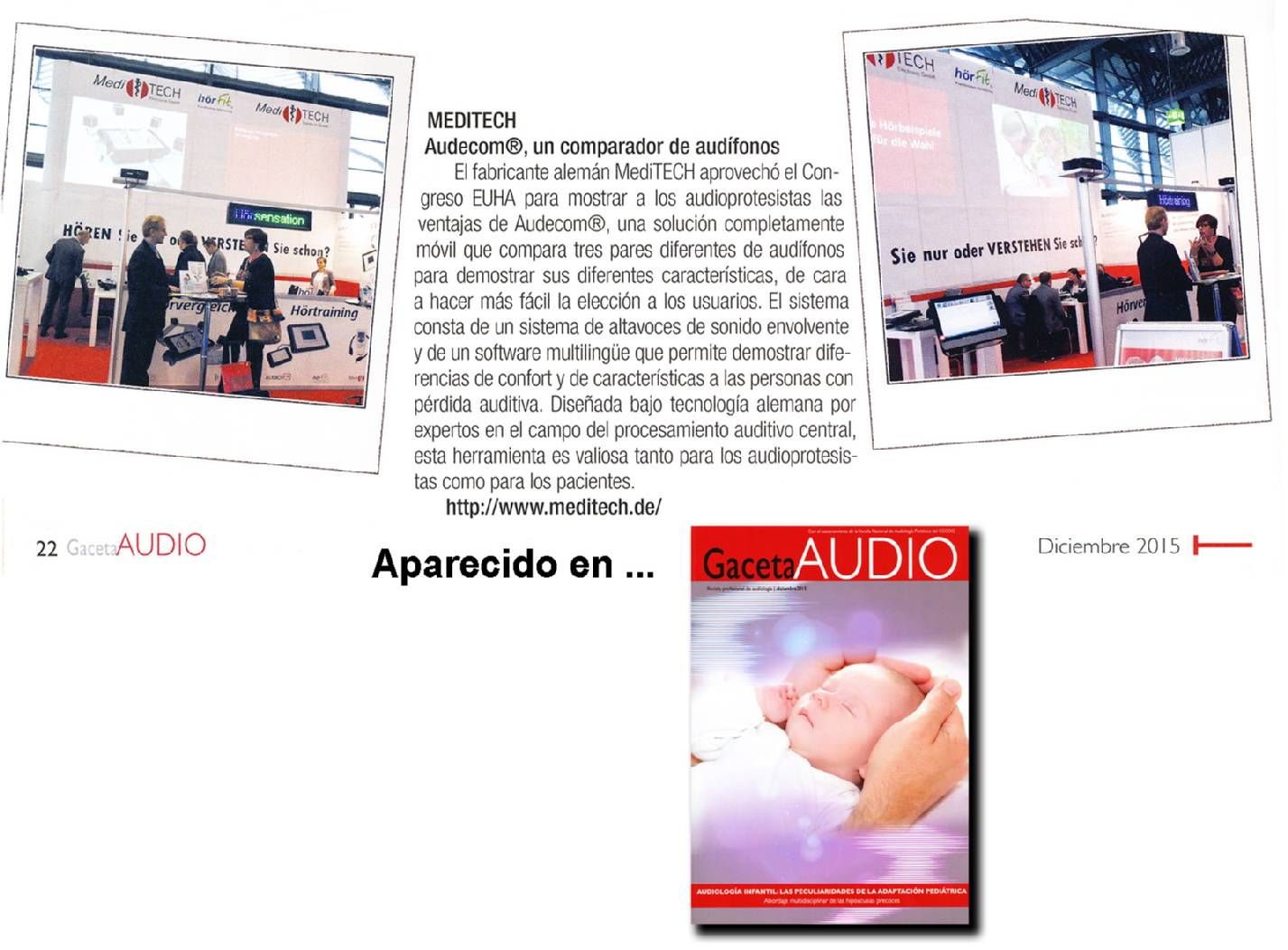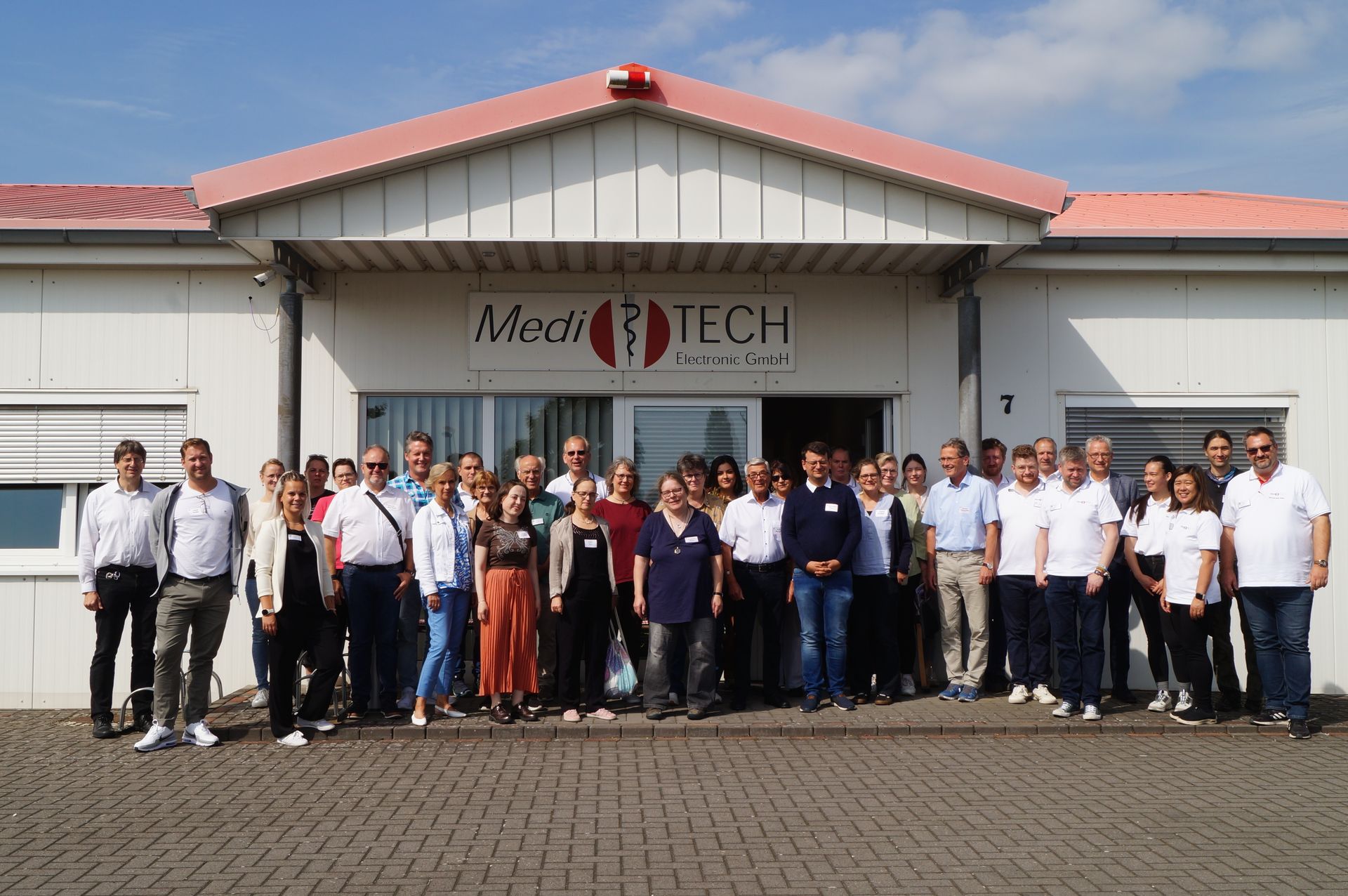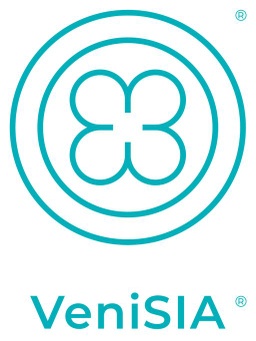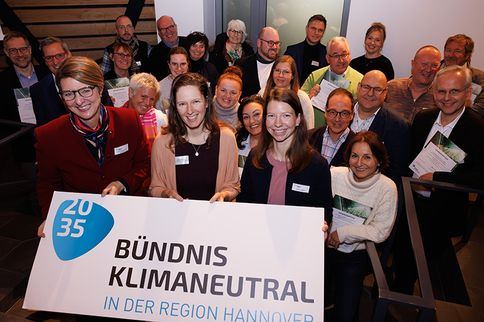News
26.08.2025 Human Speech Follows a Universal Rhythm Every 1.6 Seconds - Neuroscience News
26. August 2025
Human Speech Follows a Universal Rhythm – Every 1.6 Seconds
Eine aktuelle Studie, vorgestellt von Nori Jacoby und Kolleginnen am Max-Planck-Institut, zeigt: Gesprochene Sprache folgt weltweit einem gemeinsamen Rhythmus von etwa 1,6 Sekunden. Dieser Takt bestimmt, wie wir Silben, Wörter und Sätze organisieren. Besonders spannend: Dieser Rhythmus bleibt unabhängig von Sprache, Kultur oder Dialekt bestehen.
Die Forschenden nutzten Methoden der kognitiven Neurowissenschaft und sprachen mit Sprechergruppen verschiedenster Sprachen – darunter Deutsch, Englisch, Französisch, Chinesisch und Hebräisch. Trotz unterschiedlicher Sprachsysteme zeigten sich gleiche Muster: Alle 1,6 Sekunden bildet das Gehirn eine neue prosodische Einheit. Damit ist die Intonation – also die Sprachmelodie mit Betonung, Pausen und Tonhöhenverlauf – entscheidend für unser Sprachverständnis.
Dieser universelle Sprachrhythmus erklärt, warum Menschen unabhängig von der Muttersprache oft ein Gespür für den Sprachfluss haben. Er hilft uns, Bedeutung, Emotionen und grammatische Strukturen zu erfassen. Zudem könnte diese Erkenntnis neue Wege für Sprachtherapie, Künstliche Intelligenz und die Rehabilitation nach Schlaganfällen eröffnen.
Bezug zu MediTECH:
Für MediTECH ist dieser Befund von großer Bedeutung. Unsere Lösungen, etwa das Warnke®-Verfahren oder das BrainCentral-System, zielen auf die Verbesserung grundlegender auditiver Verarbeitungsfunktionen. Besonders die Fähigkeit, Zeit- und Tonhöhenunterschiede präzise wahrzunehmen, ist Grundlage für Sprachrhythmus und Intonation.
Auch in unseren Hörfitness®-Trainingsprogrammen trainieren Kinder und Erwachsene genau jene „Low-Level-Funktionen“, die für den universellen 1,6-Sekunden-Takt unverzichtbar sind: Ordnungsschwelle, Tonhöhenunterscheidung und Sprachmelodie.
Darüber hinaus bieten Biofeedback- und Neurofeedback-Systeme wertvolle Unterstützung bei der Selbstregulation von Aufmerksamkeit und Sprache. So kann wissenschaftliche Forschung direkt in praktische Hilfen überführt werden.
👉 Originalquelle: Jacoby, N. et al. (2024). Human speech follows a universal rhythm every 1.6 seconds. Neuroscience News Artikel.
-----------------------------------------------------------------------------------------------------------------------------------------------------------------------------------------------------------------------------------
Human Speech Follows a Universal Rhythm – Every 1.6 Seconds
A recent study by Nori Jacoby and colleagues at the Max Planck Institute reveals that spoken language worldwide follows a universal rhythm of about 1.6 seconds. This interval structures how syllables, words, and sentences are perceived and produced.
The researchers tested speaker groups of multiple languages – including German, English, French, Chinese, and Hebrew. Regardless of language or culture, the same pattern emerged: Every 1.6 seconds, the brain organizes speech into a prosodic unit. Here, prosody – meaning the melody of speech with its intonation, pauses, and pitch patterns – plays a crucial role for comprehension.
This universal rhythm explains why humans intuitively sense the flow of language, even in unfamiliar tongues. It supports our ability to capture meaning, emotions, and grammatical structures. The findings may have wide applications in speech therapy, AI development, and rehabilitation after stroke.
Connection to MediTECH:
For MediTECH, these insights are highly relevant. Solutions such as the Warnke® Method or the BrainCentral system specifically train core auditory timing and sequencing skills. These “low-level functions” – such as order threshold, pitch discrimination, and rhythm perception – form the basis of the universal 1.6-second rhythm.
Additionally, our Hörfitness® training apps and Biofeedback/Neurofeedback systems help children and adults alike to enhance attention, speech processing, and prosodic competence.
👉 Original source: Jacoby, N. et al. (2024). Human speech follows a universal rhythm every 1.6 seconds. Neuroscience News article.
Quelle/Source:
https://neurosciencenews.com/speech-rhythm-neuroscience-29606
25.08.2025 Bildungsmonitor 2024: Deutschland fällt bei Bildungsqualität zurück
25. August 2025
Quelle: Tagesschau – „Bildungsmonitor 2024: Deutschland fällt bei Bildungsqualität zurück“
(https://www.tagesschau.de/inland/schulen-qualitaet-bildungmonitor-100.html)
Deutschland rutscht im aktuellen Bildungsmonitor 2024 ab – die Bildungsqualität stagniert oder verschlechtert sich sogar. Besonders betroffen sind die Kompetenzen von Schülerinnen und Schülern in den Bereichen Lesen, Schreiben und Rechnen. Der Bericht macht deutlich: Trotz jahrelanger Reformen gelingt es dem Bildungssystem nicht ausreichend, junge Menschen auf die Anforderungen von Gesellschaft und Beruf vorzubereiten. Das wirkt sich langfristig auch auf die Innovations- und Wettbewerbsfähigkeit des Landes aus.
Auffällig ist der starke Zusammenhang zwischen sozialer Herkunft und Bildungserfolg. Kinder aus bildungsfernen Familien schneiden weiterhin schlechter ab – ein Faktor, der in internationalen Vergleichen regelmäßig kritisiert wird. Hinzu kommt, dass die Digitalisierung an vielen Schulen noch immer nicht tief genug verankert ist. Fehlende technische Ausstattung, mangelnde Lehrerfortbildung und unzureichend etablierte Förderkonzepte verschärfen die Situation.
Gerade im Bereich der Basiskompetenzen zeigt sich ein besorgniserregendes Bild: Immer mehr Kinder verlassen die Grundschule ohne ausreichendes Textverständnis. Damit steigen die Risiken für späteres schulisches Scheitern und eine eingeschränkte gesellschaftliche Teilhabe. Die Forderung nach gezielter Frühförderung, systematischer Diagnostik und innovativen Trainingsmethoden wird daher immer lauter.
Was bedeutet das für MediTECH?
Hier setzt MediTECH mit bewährten Lösungen an. Unsere Test- und Trainingssysteme – wie der Brain-Boy® oder das BrainCentral®-System – fördern gezielt grundlegende Wahrnehmungsfunktionen wie Ordnungsschwelle, Richtungshören, Tonhöhenunterscheidung und Reaktionsschnelligkeit. Studien belegen, dass gerade Defizite in diesen sogenannten „Low-Level-Funktionen“ maßgeblich zu Lese-Rechtschreib-Schwächen beitragen.
Mit dem Warnke®-Verfahren trainieren Kinder spielerisch und effizient die Basisfunktionen für Sprache und Schrift. Ergänzend dazu unterstützt unsere Hörfitness®-App Erwachsene und Kinder beim gezielten Training zentraler Hörfunktionen – auch begleitend zu Hörsystemanpassungen.
Darüber hinaus helfen unsere Biofeedback- und Neurofeedback-Systeme Kindern und Jugendlichen mit Konzentrationsproblemen oder ADHS, ihre Aufmerksamkeit besser zu regulieren. Und mit Systemen wie PerformanceLabPro oder MyOnyx bieten wir auch für Schulen mit sportlichem Schwerpunkt innovative Tools zur Förderung von Konzentration, Gleichgewicht und mentaler Stärke.
Fazit: Während der Bildungsmonitor die Defizite deutlich aufzeigt, stellt MediTECH Lösungen bereit, um Kinder und Jugendliche besser zu fördern – praxisnah, wissenschaftlich fundiert und nachhaltig wirksam.
Source: Tagesschau – “Educational Monitor 2024: Germany falls behind in education quality”
(https://www.tagesschau.de/inland/schulen-qualitaet-bildungmonitor-100.html)
The Educational Monitor 2024 reveals a worrying decline in Germany’s educational quality. Competencies in reading, writing, and mathematics are stagnating or even worsening. This lack of progress is alarming, as it impacts both the individual future prospects of students and Germany’s long-term competitiveness.
One of the central findings is the persistent link between social background and academic success. Children from less privileged families continue to struggle disproportionately. Furthermore, digitalization in schools remains underdeveloped: technical equipment, teacher training, and consistent integration into curricula are still lacking.
Basic skills are particularly concerning: a growing number of children leave primary school without sufficient reading comprehension. This deficit often leads to later academic struggles and restricted social participation. Calls for early diagnostics, targeted training, and innovative support methods are therefore intensifying.
How MediTECH provides answers
This is where MediTECH’s solutions come into play. Systems such as the Brain-Boy® and the BrainCentral® platform are designed to specifically train core perceptual skills like auditory sequencing, spatial hearing, pitch discrimination, and reaction speed. Research shows that deficits in these so-called low-level functions are closely linked to dyslexia and reading difficulties.
With the Warnke® Method, children train these functions in a playful yet systematic way, building a strong foundation for language and literacy. Complementary tools such as the Hörfitness® App support auditory training both for children and adults – also beneficial when adapting to hearing aids.
In addition, our Biofeedback and Neurofeedback solutions assist children with attention challenges (such as ADHD) to regulate focus and improve learning outcomes. For schools with a sports focus, systems like PerformanceLabPro and MyOnyx offer innovative ways to enhance balance, concentration, and resilience.
Conclusion: While the Educational Monitor highlights serious weaknesses in Germany’s school system, MediTECH offers scientifically proven tools to effectively support children and adolescents, creating the basis for better learning and long-term success.
31.07.2025 KI-gestützte Hirnstimulation zur Förderung der Aufmerksamkeit:
Neue Wege der personalisierten Neurotechnologie
31. Juli 2025
KI-gestützte Hirnstimulation zur Förderung der Aufmerksamkeit:
Neue Wege der personalisierten Neurotechnologie
Wie aktuelle Forschungsergebnisse aus den USA neue Perspektiven für das Gehirntraining
mit HEG Neurofeedback und der Body & Mind App eröffnen
Abstract:
Ein Forscherteam der University of Minnesota hat kürzlich ein neuartiges System
vorgestellt, das Künstliche Intelligenz (KI) mit individueller Hirnstimulation kombiniert, um
gezielt die Aufmerksamkeit zu steigern. Die Ergebnisse, publiziert im Journal of Neural
Engineering, zeigen erstmals, dass adaptive, KI-gesteuerte Stimulation der präfrontalen
Hirnareale die kognitive Leistungsfähigkeit messbar verbessern kann. Dieses Prinzip lässt
sich auch auf das nicht-invasive Training mit HEG Neurofeedback übertragen. Die Vision:
eine KI-unterstützte Body & Mind App, die auf Basis realer Gehirndaten individuelle
Trainingspläne für Aufmerksamkeit und Selbstregulation bereitstellt.
Aktuelle Studie: KI trifft Neurostimulation – ein adaptives System zur
Aufmerksamkeitssteigerung
In der veröffentlichten Studie entwickelten die Wissenschaftler ein geschlossenen Kreislauf-
System („closed-loop system“), das in Echtzeit EEG-Signale (elektroenzephalografische
Aktivitätsmuster) auswertet und daraus ableitet, wann eine transkranielle elektrische
Stimulation (tES) im Bereich des dorsolateralen präfrontalen Cortex sinnvoll ist. Diese
Hirnregion ist maßgeblich für Exekutivfunktionen wie Aufmerksamkeit, Arbeitsgedächtnis
und Handlungssteuerung verantwortlich.
Das KI-System wurde darauf trainiert, jene Zustände im EEG zu erkennen, in denen die
Probanden Gefahr liefen, die Aufmerksamkeit zu verlieren. Sobald dieser Zustand detektiert
wurde, wurde ein gezielter, schwacher Stromimpuls (nicht spürbar für die Teilnehmenden)
ausgelöst. Das System basierte auf einem Deep-Learning-Algorithmus, der individuell für
jede Versuchsperson angepasst wurde.
Die Ergebnisse waren beeindruckend: Teilnehmer, die mit dem adaptiven
Stimulationssystem arbeiteten, zeigten signifikant bessere Leistungen in anspruchsvollen
Aufmerksamkeitsaufgaben als Kontrollgruppen ohne Stimulation oder mit statischer
Stimulation.
Parallelen zum HEG Neurofeedback: Training statt Stimulation
Auch wenn die Studie auf externer elektrischer Hirnstimulation beruht, sind die
grundlegenden Zielsetzungen und Wirkmechanismen mit dem HEG Neurofeedback
vergleichbar. Beide Verfahren setzen auf die Modulation präfrontaler Aktivität, um
Aufmerksamkeit, Selbstregulation und exekutive Kontrolle zu verbessern. Der zentrale
Unterschied: Während die US-amerikanische Studie auf aktive Stimulation setzt, fördert das
HEG-Training die endogene Aktivierung des Frontallappens durch operantes
Feedbacktraining.
Beim HEG Neurofeedback – wie es in der Body & Mind App integriert ist – wird die
regionale Durchblutung im präfrontalen Cortex mittels nahinfraroter Lichtmessung (NIRS)
erfasst und dem Nutzer in Echtzeit rückgemeldet. Studien zeigen, dass dieses Training die
Selbststeuerung und Konzentrationsfähigkeit nachhaltig verbessern kann – vor allem bei
Aufmerksamkeitsproblemen, Stressanfälligkeit und exekutiven Schwächen.
Zukunftsperspektive: KI trifft HEG – Die nächste Generation personalisierten
Gehirntrainings
Man stelle sich folgendes Zukunftsszenario vor:
Die Body & Mind App ist mit einem hochauflösenden HEG-Sensor verbunden, der
kontinuierlich die Durchblutung und Aktivierung des präfrontalen Cortex erfasst. Eine
integrierte KI analysiert diese Daten in Echtzeit und erkennt typische Muster, die auf
Ermüdung, Überforderung oder Aufmerksamkeitsverlust hinweisen. Basierend auf einem
individuell erlernten Profil wählt die App dann:
- passende kognitive Aufgaben
- geeignete Pausenzeiten
- Atemübungen oder Entspannungsimpulse
- motivationale Rückmeldungen zum optimalen Zeitpunkt
Dabei bleibt ein wesentlicher Vorteil des HEG Neurofeedbacks erhalten: Der Mensch wird
nicht „ferngesteuert“, sondern lernt, sein Gehirn selbst zu regulieren. KI unterstützt diesen
Prozess, ohne ihn zu ersetzen.
Wichtig: Dieses Szenario beschreibt eine Zukunftsvision. Eine klinisch validierte Integration
in kommerzielle Trainingsapps wie Body & Mind steht noch am Anfang.
Fazit: Gehirntraining neu gedacht
Die Studie der University of Minnesota zeigt, wie leistungsfähig KI-basierte Systeme in der
gezielten Modulation von Aufmerksamkeit sein können. Auch wenn HEG Neurofeedback
einen anderen Weg geht – nicht über externe Stimulation, sondern über Selbstregulation –
ergeben sich hier spannende Synergien. Die Zukunft liegt in personalisierter,
datengestützter kognitiver Förderung, bei der der Mensch im Zentrum steht – unterstützt
durch smarte Technologien.
Quelle und Link zur Originalstudie:
- AI delivers brain stimulation to improve attention, NeuroscienceNews.com, 29. Juli 2025.
https://neurosciencenews.com/ai-brain-stimulation-attention-29538/
- Journal of Neural Engineering, 2025. DOI: 10.1088/1741-2552/ad54db
Literatur
【1【Carmen C. S. et al. (2021). Effects of HEG Neurofeedback on Executive Functions in
Children with Attention Disorders. NeuroRegulation, 8(3), 155–164.
【2【Toomim, H., & Carmen, J. A. (2009). HEG-based training of prefrontal activity:
Applications for attention, memory and mood regulation. Applied Psychophysiology and
Biofeedback, 34(4), 291–302.
【3【Enriquez-Geppert, S. et al. (2014). Neurofeedback of frontal-midline theta oscillations.
Biological Psychology, 95, 59–69.
24.06.2025 - Klimaresilientes Gewerbegebiet Bissendorf - Unternehmen diskutieren Energiewende
24. Juni 2025
Klimaresilientes Gewerbegebiet Bissendorf - Unternehmen diskutieren Energiewende
Photovoltaik, Praxisbeispiele und Partnerschaften: Fünf Unternehmen aus Bissendorf diskutierten Wege zur Energiewende im Gewerbegebiet – eine Betriebsführung inklusive.

Am 18. Juni trafen sich fünf Unternehmen bei der Kirsch BioPharm GmbH in Bissendorf zu einem intensiven Austausch rund um das Thema Photovoltaik.
Eingeladen hatten die Wirtschaftsförderung der Gemeinde gemeinsam mit dem Sanierungsmanagement Bissendorf. Im Mittelpunkt stand die Diskussion einer Stromkooperation im Quartier – mit dem Ziel, Erfahrungen zu teilen, Synergien zu erkennen und konkrete Umsetzungsansätze zu diskutieren. Dazu konnte Kersten Lauer (Kirsch BioPharm GmbH) aus eigenen betrieblichen Erfahrungen berichten. Einen wichtigen Rahmen setzte Jörg Rettig von der Klimaschutz- und Energieagentur Niedersachsen mit Informationen zur Umsetzung der Solarpflicht im Land Niedersachsen.
Ein besonderes Highlight der Veranstaltung war die Führung durch das Firmengebäude von Kirsch BioPharm – inklusive Besichtigung der Anlagentechnik.

Der Austausch zeigte eindrucksvoll: Die Energiewende im Quartier gelingt am besten gemeinsam – durch Dialog, Praxisbezug und Kooperation.
05.06.2025 - Virtuelle Realität gegen Angststörungen: NDR berichtet über innovative Therapie mit VR-Technologie
Virtuelle Realität gegen Angststörungen: NDR berichtet über innovative Therapie mit VR-Technologie
5. Juni 2025
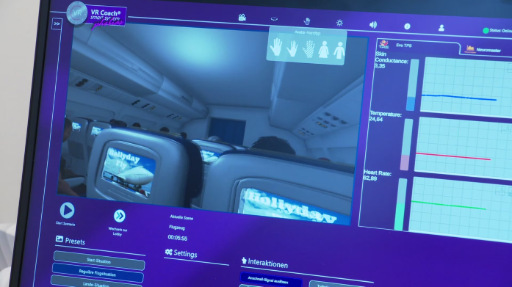
Der Computer zeigt, was die Menschen in der VR-Brille sehen können. Hier eine Simulation, die bei Flugangst helfen soll.
Wie moderne Technologie hilft, Ängste zu überwinden – vom Zahnarztbesuch über das Sprechen vor Gruppen bis zur Flugangst. Der NDR berichtet über den Einsatz von Virtual-Reality-Therapie im Wahrendorff Klinikum in Sehnde. Besonders eindrucksvoll: Eine Patientin stellt sich nach jahrelanger Flugangst mit VR-Brille und psychologischer Begleitung ihrer Angst – mit Erfolg.
Als Partner der VR Coach GmbH freuen wir uns, Teil dieser zukunftsweisenden Lösung zu sein. Die Kombination aus immersiver Technik und Biofeedback eröffnet neue Möglichkeiten für die psychotherapeutische Arbeit.
👉 Jetzt Artikel lesen – hier beim NDR
22.01.2025 - Tragbarer Gehirnscanner zeigt, wie sich das Gleichgewicht des Gehirns mit dem Alter verändert
Tragbarer Gehirnscanner zeigt, wie sich das Gleichgewicht des Gehirns mit dem Alter verändert
EN: Wearable Brain Scanner Reveals How Brain Balance Shifts With Age
9. April 2025
Tragbarer Gehirnscanner zeigt, wie sich das Gleichgewicht des Gehirns mit dem Alter verändert
Eine aktuelle Studie von Forschern der Universität Nottingham und des Hospital for Sick Children (SickKids) in Toronto liefert neue Erkenntnisse darüber, wie sich die Gehirnfunktion vom frühen Kindesalter bis ins Erwachsenenalter entwickelt. Mithilfe eines neuartigen tragbaren Magnetoenzephalographie (MEG)-Scanners wurde die Gehirnaktivität von 101 gesunden Personen im Alter zwischen 2 und 34 Jahren gemessen. Die Ergebnisse zeigen, dass mit zunehmendem Alter die exzitatorischen (erregenden) Prozesse im Gehirn abnehmen, während die inhibitorischen (hemmenden) Prozesse zunehmen, was auf eine Veränderung des Erregungs-Hemmungs-Gleichgewichts (E-I-Gleichgewicht) im Laufe der Zeit hindeutet. Neuroscience News
Die tragbare MEG-Technologie verwendet optisch gepumpte Magnetometer (OPMs), die in einen leichten Helm integriert sind und eine nicht-invasive sowie komfortable Gehirnbildgebung selbst bei sehr jungen Kindern ermöglichen. Dieses kinderfreundliche Design erlaubt es den Forschern, die Gehirnaktivität in Echtzeit zu erfassen, während die Kinder sich während des Scanvorgangs frei bewegen können. Die Ergebnisse der Studie schaffen eine entwicklungsbezogene Referenz, die das Verständnis von neurodevelopmentalen Störungen wie Autismus verbessern könnte, bei denen ein atypisches E-I-Gleichgewicht vermutet wird.
Professor Matthew Brookes vom Sir Peter Mansfield Imaging Centre der Universität Nottingham betonte den transformativen Einfluss von Quantentechnologien auf die Gehirnbildgebung und merkte an, dass die Messung von MEG-Signalen bei jungen, sich frei bewegenden Kindern einst als unerreichbar galt, nun jedoch Realität ist. Neuroscience News
A recent study conducted by researchers from the University of Nottingham and The Hospital for Sick Children (SickKids) in Toronto has provided new insights into how brain function evolves from early childhood into adulthood. The study utilized a novel wearable magnetoencephalography (MEG) scanner to measure brain activity in 101 healthy individuals aged between 2 and 34 years. The findings indicate that as children age, excitatory brain processes decrease while inhibitory processes increase, suggesting a shift in the brain's excitation-inhibition (E-I) balance over time. Neuroscience News
The wearable MEG technology employs optically pumped magnetometers (OPMs) integrated into a lightweight helmet, allowing for noninvasive and comfortable brain imaging even in very young children. This child-friendly design enables researchers to capture real-time brain activity while allowing natural movement during the scanning process. The study's results establish a developmental benchmark that could enhance the understanding of neurodevelopmental disorders such as autism, which are believed to involve atypical E-I balance. Neuroscience News
Professor Matthew Brookes from the University of Nottingham's Sir Peter Mansfield Imaging Centre highlighted the transformative impact of quantum technologies on brain imaging, noting that measuring MEG signals in young, freely moving children was once considered unattainable but is now a reality. Neuroscience News
09.04.2025 - KI- und VR-System erkennt Autismus bei Kindern mit über 85% Genauigkeit
KI- und VR-System erkennt Autismus bei Kindern mit über 85 % Genauigkeit
AI and VR System Detects Autism in Kids with Over 85% Accuracy
9. April 2025
Ein Forscherteam des Human-Tech Institute der Universitat Politècnica de València (UPV) hat ein innovatives System zur frühzeitigen Erkennung von Autismus-Spektrum-Störungen (ASS) bei Kindern im Alter von 3 bis 7 Jahren entwickelt. Dieses System kombiniert Virtual Reality (VR) und künstliche Intelligenz (KI) und erreicht eine Genauigkeit von über 85 %, womit es herkömmliche diagnostische Methoden übertrifft. Die Ergebnisse dieser Forschung wurden in der Fachzeitschrift Expert Systems with Applications veröffentlicht. Neuroscience News+1Cadena SER+1Cadena SER+1Neuroscience News+1
Das System projiziert realistische virtuelle Umgebungen auf die Wände eines Raumes oder auf eine Großbildleinwand, in die das Bild des Kindes integriert wird. Während das Kind verschiedene Aufgaben ausführt, analysiert eine Kamera seine Bewegungen und Blickrichtungen. Dieser Ansatz ermöglicht es, authentische Reaktionen zu erfassen und standardisierte Verhaltensbiomarker zu analysieren. Laut Mariano Alcañiz, Direktor des Human-Tech Institute, bietet die Nutzung von VR eine signifikante Verbesserung gegenüber traditionellen Labortests, da realitätsnahe Interaktionen untersucht werden können. Neuroscience News+1Cadena SER+1Cadena SER+1Neuroscience News+1
Das entwickelte System erfordert lediglich eine handelsübliche Kamera und einen großen Bildschirm, was es kostengünstiger und zugänglicher macht als herkömmliche diagnostische Methoden. In den letzten acht Jahren hat das UPV-Team in Zusammenarbeit mit dem kognitiven Entwicklungszentrum Red Cenit intensiv an der Perfektionierung dieses Systems gearbeitet. Die Forscher betonen, dass die einfache Erfassung dieser Daten und ihre hohe Effektivität bei der Erkennung von Autismus motorische Aktivität zu einem vielversprechenden Biomarker machen. Neuroscience News+1Cadena SER+1
Dieses System stellt einen bedeutenden Fortschritt in der frühzeitigen Erkennung von ASS dar und könnte die diagnostischen Verfahren in der pädiatrischen Praxis nachhaltig verbessern.
A research team from the Human-Tech Institute at the Universitat Politècnica de València (UPV) has developed an innovative system for the early detection of Autism Spectrum Disorder (ASD) in children aged 3 to 7 years. This system combines virtual reality (VR) and artificial intelligence (AI), achieving an accuracy of over 85%, surpassing traditional diagnostic methods. The results of this research have been published in the journal Expert Systems with Applications. Cadena SER+1Neuroscience News+1Neuroscience News+1Cadena SER+1
The system projects realistic virtual environments onto the walls of a room or a large-format screen, integrating the child's image. While the child performs various tasks, a camera analyzes their movements and gaze directions. This approach allows for the capture of authentic responses and the analysis of standardized behavioral biomarkers. According to Mariano Alcañiz, director of the Human-Tech Institute, the use of VR offers a significant improvement over traditional laboratory tests by enabling the study of more genuine interactions. Neuroscience News+1Cadena SER+1
The developed system requires only a commercially available camera and a large screen, making it more cost-effective and accessible than traditional diagnostic methods. Over the past eight years, the UPV team, in collaboration with the cognitive development center Red Cenit, has worked intensively on perfecting this system. The researchers emphasize that the ease of collecting this data and its high effectiveness in detecting autism make motor activity a promising biomarker. Cadena SER+1Neuroscience News+1Neuroscience News+1Cadena SER+1
This system represents a significant advancement in the early detection of ASD and could sustainably improve diagnostic procedures in pediatric practice.
22.01.2025 - EULE - Innovative Verbesserung der Pflege älterer Menschen im häuslichen Umfeld
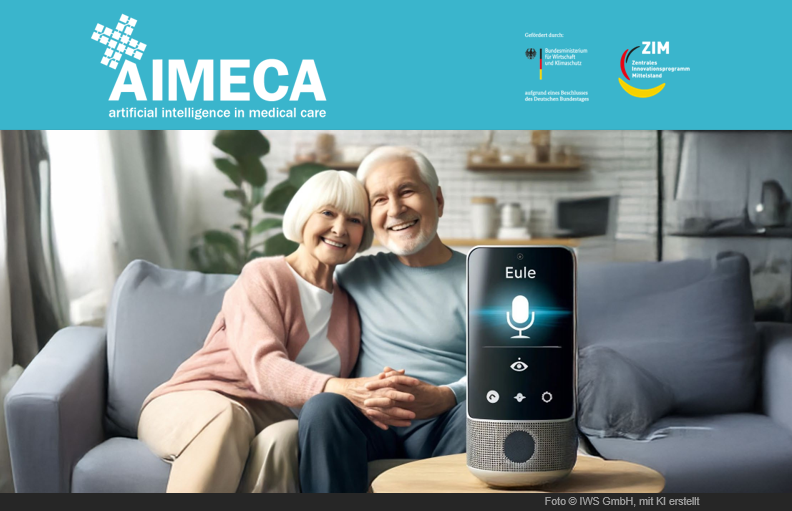
Forschungsprojekt der Deutschen Sporthochschule Köln zur innovativen Verbesserung der Pflege älterer Menschen im häuslichen Umfeld
Köln, 22.01.2025 – Das Innovationsprojekt "EULE" verfolgt das Ziel, ein intelligentes Home- Monitoring-System zu entwickeln, das Pflegekräfte und Angehörige bei der Pflege älterer Menschen unterstützt und sich nahtlos in den Alltag integriert. Dafür bündeln das Institut für Bewegungstherapie und bewegungsorientierte Prävention und Rehabilitation der Deutschen Sporthochschule Köln, die MediTECH Electronic GmbH und die cibX GmbH sowie das Institut für Informatik, Robotik und Kybernetik an der Czech Technical University in Prag ihre Kompetenzen. Das internationale Kooperationsprojekt "EULE" wird mit einem Gesamtvolumen von rund 714.000 Euro aus dem Zentralen Innovationsprogramm Mittelstand (ZIM) gefördert.
Herausforderungen und Chancen für die häusliche Pflege
Viele ältere Menschen möchten möglichst lange in ihrer vertrauten Umgebung leben. Doch altersbedingter Muskelabbau, Gangunsicherheiten und eine nachlassende körperliche Leistungsfähigkeit erhöhen das Sturzrisiko sowie den Pflegebedarf. und können die Lebensqualität erheblich beeinträchtigen. Angehörige stehen dadurch oft unter erheblichem Druck, während Pflegedienste aufgrund des Fachkräftemangels an ihre Grenzen stoßen. Moderne Technologien sollen nun eine bessere Unterstützung ermöglichen. Ein intelligentes Home-Monitoring-System soll nicht nur wichtige Gesundheitsdaten erfassen, sondern auch die Interaktion mit den Betroffenen erleichtern. So sollen Angehörige und Pflegekräfte entlastet und gleichzeitig die Selbstständigkeit der Senioren gefördert werden.
Intelligentes Home-Monitoring-System
Das System EULE (kurz für "Erkennen und Lernen") wird mit Sensoren ausgestattet, die Bewegungen, Puls, Atmung und weitere Vitalparameter kontinuierlich aufzeichnen und analysieren. Bei auffälligen Veränderungen oder akuten Zwischenfällen – etwa einem Sturz – werden individuelle Warnmeldungen generiert.
Das Bewegungsmonitoring der EULE soll neben der Detektion von ungewöhnlichen Ereignissen auch alltägliche Bewegungen algorithmisch auswerten und anhand dieser ein erhöhtes Sturzrisiko oder nach Möglichkeit auch Anzeichen für Krankheiten, wie beispielsweise Parkinson oder einem Schlaganfall, erkennen. Durch die datenschutzkonforme Integration von kamera- und mikrofonbasierten Datenerfassungstechnologien sowie KI-basierten Analysen soll die EULE dazu beitragen, den Pflegebedürftigen ein autonomes Leben im eigenen Zuhause zu ermöglichen und gleichzeitig die psychische Belastung der pflegenden Angehörigen zu reduzieren.
Internationale Zusammenarbeit
Die Abteilung I für Bewegungsorientierte Präventions- und Rehabilitationswissenschaften innerhalb des Instituts für Bewegungstherapie und bewegungsorientierte Prävention und Rehabilitation an der Deutschen Sporthochschule Köln wird fortschrittliche Algorithmen entwickeln, die basierend auf Kameradaten Bewegungsparameter, Akutereignisse wie Stürze und pathologische Anomalien in alltäglichen Bewegungen erfassen. Durch das Monitoring von Gangparametern sollen beispielsweise Sturzprädiktoren frühzeitig identifiziert und Veränderungen sowie pathologische Auffälligkeiten detektiert werden. Auch die Validierung des entwickelten Systems obliegt der Deutschen Sporthochschule Köln. Die MediTECH Electronic GmbH entwickelt sensorbasierte Messmethoden zur kontaktlosen Erfassung von Vitalparametern wie Puls oder Atmung. Ein von der cibX GmbH entwickelter Voicebot soll nicht nur die Kommunikation mit den Pflegebedürftigen ermöglichen, sondern durch die Auswertung von Stimmparametern auch die Sprache der Pflegebedürftigen auf Veränderungen überprüfen, die frühzeitig Hinweise auf mögliche gesundheitliche Fragestellungen geben sollen. Zusätzlich werden Forschende am Tschechischen Institut für Informatik, Robotik und Kybernetik an der Technischen Universität Prag die Implementierung einer KI zur Analyse und Interpretation der multimodalen Gesundheitsdaten unterstützen. Durch die Verknüpfung und Analyse verschiedener Gesundheitsparameter entsteht ein umfassendes Gesamtbild und eine einfühlsame und überzeugende technologische Alltagsbegleitung. Auffällige Ereignisse werden erkannt, und individuelle Warnungen können an die Pflegebedürftigen, Angehörigen und Pflegefachkräfte gesendet werden, um die Versorgung im häuslichen Umfeld langfristig zu verbessern.
Die Idee zum Projekt "EULE"
ist im Rahmen des Innovationsnetzwerks AIMECA
- Künstliche Intelligenz in der medizinischen Versorgung entstanden, das
über das Zentrale Innovationsprogramm Mittelstand (ZIM) gefördert wird. Im Zuge
der Mitgliedschaft werden die Projektbeteiligten aktiv bei der Realisierung von F&E-Projekten sowie
der Sicherstellung der Finanzierung
unterstützt. Betreut wird AIMECA von
der IWS GmbH, die auch das
Antragsmanagement der Kooperationsprojekte übernimmt und die Mitglieder
intensiv bei der Entwicklung neuer Technologien begleitet.
Projektbeteiligte "EULE":
Deutsche Sporthochschule Köln | Köln |
www.dshs-koeln.de/visitenkarte/einrichtung/bewegungstherapie-und-bewegungsorientierte- praevention-und-rehabilitation
MediTECH Electronic GmbH | Wedemark | www.meditech.de
cibX GmbH | Greven | www.cibx.de
Czech Technical University | Prag | www.ciirc.cvut.cz
Weitere Informationen finden Sie auf unter: www.aimeca.net
05.02.2025 - Grundschule Resse setzt auf innovative Hörtrainingstechnologie von MediTECH
Grundschule Resse setzt auf innovative Hörtrainingstechnologie von MediTECH
Wedemark, 5. Februar 2025 – Die MediTECH Electronic GmbH freut sich, ein wegweisendes Schulprojekt an der Grundschule Resse zu unterstützen, das vom Kultusministerium Niedersachsen genehmigt wurde. Im Rahmen dieses Projekts stellt MediTECH innovative Hörtrainingssysteme im Wert von über 50.000 € zur Verfügung. Ziel ist es, die auditive Wahrnehmungs- und Sprachverarbeitungsfähigkeiten der Schülerinnen und Schüler nachhaltig zu verbessern.
Pilotprojekt zur Förderung der Hör- und Sprachkompetenz
In der heutigen lauten Lernumgebung stehen Kinder zunehmend vor der Herausforderung, Nebengeräusche zu filtern und sich gezielt auf gesprochene Inhalte zu konzentrieren. Die MediTECH-Technologie, darunter der bewährte Brain-Boy, hilft dabei, die Hörverarbeitung zu schulen und die Fähigkeit zur auditiven Differenzierung zu steigern. Dies trägt maßgeblich zur Verbesserung des Schriftspracherwerbs und der allgemeinen kognitiven Entwicklung bei.
Enge Zusammenarbeit mit der Grundschule Resse
Das Projekt startete mit einer umfassenden Einführung durch MediTECH-Geschäftsführer Ralph Warnke, der die Lehrkräfte der Grundschule Resse intensiv schulte. Die Kinder nutzen nun in einem mehrmonatigen Feldversuch spezielle Hörtrainingsgeräte, mit denen sie ihr Richtungshören, ihre Tonhöhenunterscheidung und ihre Konzentrationsfähigkeit trainieren. Auch die Evaluierung des Projekts erfolgt wissenschaftlich fundiert und unter Einhaltung der Datenschutzbestimmungen.
Positive Resonanz aus der Praxis
„Wir sind begeistert, dass die Schülerinnen und Schüler der Grundschule Resse mit so viel Engagement an den Hörübungen teilnehmen“, sagt Ralph Warnke. „Unsere Technologie wurde ursprünglich für Menschen mit Hörstörungen entwickelt, doch sie zeigt auch im schulischen Umfeld großes Potenzial zur Verbesserung der Sprach- und Hörverarbeitung.“
Die Schulleiterin der Grundschule Resse, Christina Jarolin, betont ebenfalls die Bedeutung dieses Projekts: „Durch das gezielte Training erhalten die Kinder wertvolle Unterstützung für ihren Lernalltag. Wir sind gespannt auf die Ergebnisse der Evaluierung.“
Wissenschaftliche Hintergründe und Evaluation
Hören und Sprachverarbeitung sind fundamentale Fähigkeiten für den schulischen Erfolg. Studien zeigen, dass eine gezielte auditive Stimulation nicht nur das Hörverständnis, sondern auch die gesamte kognitive Leistungsfähigkeit verbessert. Das Projekt in der Grundschule Resse basiert auf wissenschaftlichen Erkenntnissen und wird über die gesamte Laufzeit hinweg evaluiert. Hierbei werden verschiedene Testverfahren angewendet, um die Fortschritte der Kinder in Bezug auf ihre auditive Wahrnehmung und Sprachverarbeitung zu dokumentieren.
Ein zentraler Bestandteil des Programms ist die Messung der Fähigkeit zur Unterscheidung feiner akustischer Unterschiede, der Reaktionszeit auf Sprachsignale sowie des Richtungshörens. Die anonymisierten Daten werden analysiert, um langfristige Effekte der Trainingsmaßnahmen auf die Sprach- und Lernfähigkeiten zu erfassen.
Unterstützung durch Lehrkräfte und Eltern
Neben den Schülerinnen und Schülern wurden auch die Lehrkräfte der Grundschule Resse intensiv geschult, um das Hörtraining in den Unterricht zu integrieren. Die Eltern wurden ebenfalls über das Projekt informiert und können zu Hause durch gezielte Übungen unterstützen. Der enge Austausch zwischen Schule, Eltern und MediTECH stellt sicher, dass die Maßnahmen nachhaltig wirken und langfristig in den Schulalltag eingebettet werden können.
Vergangene Erfolge und zukünftige Perspektiven
Ähnliche Programme mit der MediTECH-Technologie wurden bereits an anderen Schulen erfolgreich umgesetzt. Die Ergebnisse zeigen, dass Schülerinnen und Schüler, die regelmäßig mit den Geräten trainieren, deutliche Verbesserungen in ihrer Hörverarbeitung und Sprachkompetenz erzielen. Langfristig kann dies auch positive Effekte auf das Leseverständnis, die Konzentrationsfähigkeit und die schulischen Leistungen haben.
Das Kultusministerium Niedersachsen hat signalisiert, dass bei positiver Evaluation eine Ausweitung des Programms auf weitere Schulen in Betracht gezogen wird. Dadurch könnten noch mehr Kinder von den Vorteilen dieser innovativen Technologie profitieren.
Mehr über das Schulprojekt
Mehr über das Schulprojekt und die Hintergründe können Sie im Originalbeitrag der HAZ nachlesen: Link zum HAZ-Artikel.
Über MediTECH Electronic GmbH
Seit über 25 Jahren entwickelt und vertreibt MediTECH innovative Lösungen für Hör-, Lern- und Neurofeedback-Training. Das Unternehmen mit Sitz in Wedemark setzt sich für die nachhaltige Förderung von Sprach- und Hörfähigkeiten ein und unterstützt Bildungseinrichtungen sowie therapeutische Fachkräfte mit modernsten Trainingssystemen.
Weitere Informationen finden Sie auf unserer Website: www.meditech.de
19.11.2024 - The Innate Ability of Newborns to Recognize Complex Sound Patterns
In groundbreaking research, scientists have discovered that newborns can recognize complex sound patterns from the moment they are born. This remarkable ability, which involves detecting dependencies between non-adjacent sounds, is essential for language acquisition. Using near-infrared spectroscopy to monitor brain activity, researchers found that even infants as young as a few days old could distinguish between correct and incorrect sound sequences.
The study, led by a team of researchers from the University of Vienna, highlights that newborns’ brains activate language-processing areas when exposed to complex sound patterns, particularly in the left hemisphere. This suggests that the brain is already prepared to process the fundamental building blocks of language from birth. By six months, these networks become more specialized, forming a critical foundation for language skills.
The implications of this research are far-reaching. It suggests that early sound exposure plays a pivotal role in brain development, shaping the neural networks that will support language learning throughout life. In particular, this study points to the potential for musical and auditory interventions to enhance language development in infants, especially in under-stimulating environments.
These findings are particularly relevant for understanding the neurodevelopmental needs of premature infants or those in less stimulating environments. The study also opens the door for exploring how non-linguistic sound patterns, such as music, can be used to foster language development in the earliest stages of life.
The research not only enriches our understanding of language acquisition but also provides new insights into how early experiences shape the brain’s capacity to process complex sounds. With this knowledge, early intervention programs could be designed to use auditory stimuli to accelerate the development of crucial language skills.
You can find the original article on the Internet at
https://neurosciencenews.com/infant-complex-sound-neurodevelopment-27945/
18.11.2024 - MediTECH highly rated by kununu
kununu is an independent review platform where employees of companies can (anonymously) have their say and rate and comment on their employer - or ex-employer.
Based on these ratings, applicants and interested parties can find out about a potential employer in advance and compare it with others.
The best employers in Germany in the health/social/nursing sector in the category small and medium-sized enterprises 2025 awarded the kununu Top Company seal.
kununu honors the best employers with the Top Company Award. Around 5% of all employer profiles receive this award exclusively on the basis of kununu ratings.
MediTECH Electronic GmbH is kununu Top Company 2025
https://www.kununu.com/de/meditech-electronic1
31.08.2024 - 1st Congress on Perception and Neurorehabilitation
Question: 11 lectures - 10 speakers - 30 face-to-face participants - 48 online participants - 3 themed stations - what does that add up to?
That's right - these are the pleasing key figures of the 1st Congress on Perception and Neurorehabilitation, which took place on August 31, 2024 in the Hanover region and brought together an interdisciplinary group of participants from Germany, Austria, Switzerland, France and Spain.
In addition to the intellectual nourishment in the form of various topics and practical information in the lectures and when visiting the themed stations, which were available to all participants, the attendees were able to fortify themselves throughout the day with delicious snacks, waffles and crèpes as well as drinks.
The response to the day prompted MediTECH to immediately start planning the second specialist congress. This will take place on September 6th, 2025.
You can book access to all lectures or individual lectures at all our courses at a glace
Information on the 2025 congress can be found here - this will be updated gradually. You can also find a few impressions of the 2024 congress there.
29.05.2024 - MediTECH is an excellent shaper of the future
The #zusammenwedemark business association awarded MediTECH first place in the "Shaping the future" category of the first-ever WedeMarkenAward in four categories.
In the laudation, particular recognition was given to the company's commitment to improving the quality of life of young and old people, from toddlers to senior citizens. The products and solutions for the areas of biofeedback, neurofeedback, balance, learning support and hearing training took center stage.
In addition to this economic aspect, the social and environmental activities were also evaluated, with which MediTECH has already taken several steps on the way to energy autonomy.
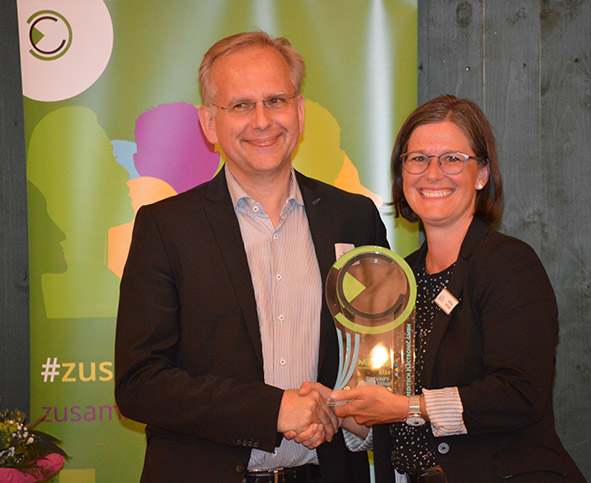
27.05.2024 - MediTECH selected as representative for contribution to research and development database
As part of a Europe-wide survey on research and development (R&D), MediTECH 2023 was selected as representative for the German part. MediTECH's high proportion of research and development activities drew the attention of the Stifterverband, the organization commissioned by the Federal Ministry of Education and Research.
In an extensive survey, we were thus able to actively support the creation and maintenance of the reporting system for research and innovation in Germany and Europe.
The results of the systems are used as a basis for decisions, trend observations and analyses of technological and innovative performance in Germany, the EU and the OECD.
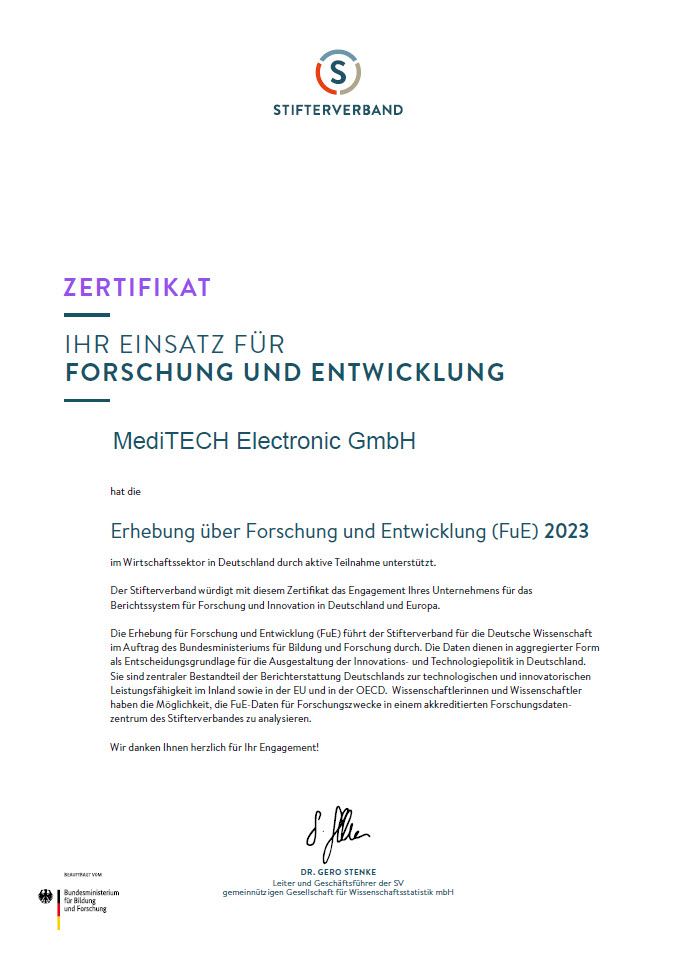
06.05.2024 - next steps towards environmental awareness: MediTECH goes electric
Two charging stations for electric cars have adorned the outside wall of the MediTECH building for two years now.
In the meantime, they are also being used intensively, as the four electric cars in the company's own fleet need to be recharged after the miles have been driven. For a company with around 15 employees, that's a considerable number.
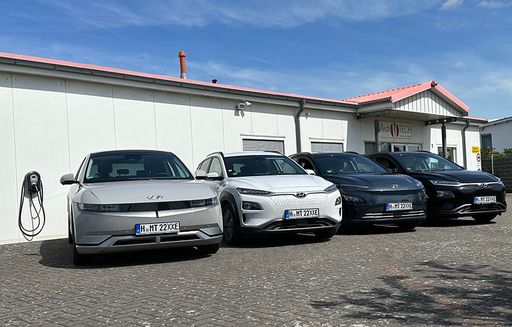
Gradually converting the vehicle fleet to e-cars is the logical consequence of participating in the Hanover region's "Climate Neutral Alliance", in which MediTECH, together with a number of large, medium-sized and small companies, has taken up the cause of nature conservation.
Incidentally, MediTECH produces a large proportion of the electricity required for the e-cars with its own photovoltaic system on the roof, which has been in operation since 2014.
A further step towards energy self-sufficiency is already being planned and is about to be implemented - you will read about it here as soon as it is ready to go ahead.
26.02.2024 - MediTECH supports the VeniSIA® project at the University of Venice (Italy)
| The next step with the partnership in the VeniSIA project is therefore the logical consequence:The University of Venice has launched this project VeniSIA - Venice Sustainability Innovation Accelerator. VeniSIA is a Venice-based sustainability innovation accelerator dedicated to the development of business ideas and technology solutions capable of tackling climate change and other environmental challenges. This is to be done primarily in line with the Sustainable Development Goals (SDGs) defined in the UN 2030 Agenda for Sustainable Development. Fondazione Ca' Foscari, an institution of the University of Venice since 2010, pursues its mission as part of the University's "third mission" through integrated education, research and technology transfer programs and cultural activities with the aim of contributing to the sustainable and responsible growth of the region and communities.Fondazione Ca' Foscari works on behalf of the University of Venice to attract institutions, companies and individuals who share the mission and values of VeniSIA. |
VeniSIA – is a project by Ca’ Foscari University of Venice. |
|
|
MediTECH supports this special project.
21.02.2024 - Digitization in schools: Now the step backwards or the emergency brake?
Was digitalization too much and too fast?
Scandinavian countries in particular are regarded as pioneers and role models in the field of digitalization - including in learning and at school. However, teachers in elementary school in particular are now apparently sounding the alarm that children's school performance in math and writing has deteriorated significantly since the introduction of tablets.
Was it too early for digitalization in schools - especially in the lower grades? Or did it all happen too quickly?
In a report by zdf_heute on February 21, 2024, Swedish teachers have their say and report on their experiences and ideas.
01.12.2023 - Klimabündnis in der Region Hannover 2023: 1. Jahresveranstaltung
Die Teilnehmer des Klimabündnis in der Region* Hannover 2023 lernen sich kennen
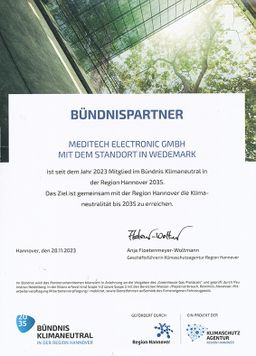
|
|
A solar system on the roof, a wind turbine for the site that has already been procured and will soon be installed, a vehicle fleet consisting largely of e-cars and many employees who travel by public transport from Hanover to the region* despite the distance - these are individual steps on the company's path to climate neutrality.
It is therefore a logical consequence that MediTECH is also part of the "Climate Neutral Alliance in the Hannover Region". As we already described in September, MediTECH is one of the participants in the program with which the Hannover Region supports and promotes SME companies to act well and sustainably on the path to climate neutrality.
The first annual meeting of the alliance has now taken place, at which the participants were able to get to know each other and report and exchange initial experiences.
The fact that the alliance is under the patronage of Regional President Stefan Krach shows that it is important to the region.
* Region Hannover is not a simple geographical designation. It is a fixed term and an administrative unit for the city of Hanover and 20 towns and municipalities around Hanover - with a total of around 1.2 million inhabitants
30.11.2023 - MediTECH Electronic GmbH at MEDICA 2023
We were at the MEDICA trade fair in Düsseldorf again this year!

MediTECH Electronic GmbH was represented at the WTSH joint stand from 13.11.2023 to 16.11.2023.
As in previous years, the company had the opportunity to join the joint stand from Schleswig-Holstein.
An exciting week at the trade fair with many familiar and new contacts! We were able to present our products and services effectively. Whether biofeedback/neurofeedback, mobile solutions, the new BrainCentral system or tried and tested technology such as the AUDECOM, the BrainBoy and the AT3000 - visitors were able to marvel at the products day after day over the four days of the trade fair and also test them live and on site. MediTECH staff were on hand to provide advice and assistance, explain the facts and answer visitors' questions. From students to professors from countless nations, many people were represented.
The joint stand of Wirtschaftsförderung Schleswig-Holstein (WTSH - GmbH) supported us to the best of their ability and once again made it possible for us to take part in their joint stand. Thank you very much for this opportunity!
We are already looking forward to 2024! This was the final trade fair appearance of MediTECH Electronic GmbH in the calendar year 2023. Next year we will start at the end of January with the TheraPRO trade fair in Stuttgart.

As external links are used here, MediTECH has no influence on their unrestricted accessibility.
Business Development and Technology Transfer Schleswig-Holstein
(wtsh.de)
20.09.2023 - MediTECH Electronic GmbH joins the Climate Neutral Alliance
Beitritt zum Klimabündnis Region Hannover - gesteuert durch die Klimaschutzagentur Region Hannover!

MediTECH Electronic GmbH has joined the Climate Neutral Alliance.
The partnership and the project are a joint responsibility with the climate protection agency from the Hanover region
We are jointly pursuing the goal of being climate-neutral by 2035 and are happy to have joined and started the partnership in this project.
We look forward to a lively exchange and good cooperation in order to achieve the goals we have set ourselves. In the future, we as a company are striving to do even more for the future of the planet as a supporter of carbon neutrality in our company. With the support of the partnership, we will continue on our path undeterred and strengthened.
We are aiming for an annual reduction in emissions by the target year 2035 and are also focusing on compliance with the global Sustainable Development Goals (SDGs)
The guiding principle of the alliance:
Quote:
"Each participating company undertakes to gradually become climate-neutral by 2035 at the latest. The Hannover Region Climate Protection Agency provides guidance and support along the way - with advice, annual carbon accounting and performance reviews. The initial focus is on reducing CO 2 emissions through greater energy efficiency and offsetting unavoidable residual emissions through high-quality certified projects, which are generally located in developing countries and are committed to sustainable local CO 2 savings and social and economic development. In future, part of the compensation money will also be used to feed a climate fund of the Climate Protection Agency Hannover Region to promote sustainability projects in the region."
Quelle:
https://www.ecobizz.de/buendnis
Information on the Climate Protection Agency Hannover Region:
The Climate Protection Agency Hannover Region is a non-profit organization that was founded in 2001. They act as a point of contact for anyone in the Hannover Region who is interested in climate protection. Their aim is to reduce climate-damaging emissions and achieve climate neutrality in the Hannover Region as quickly as possible. Among other things, the climate protection agency offers support through numerous advisory services, analyses, mediation, support in the implementation of climate protection concepts and much more.
Quote:
The non-profit Climate Protection Agency Hannover Region informs, advises and motivates citizens on all aspects of climate protection. It also brings stakeholders together to jointly shape a climate-friendly future in the Hannover Region.
Die
Region Hannover
and the
City of Hannover
, well-known companies and a strong sponsoring association with more than 60 other companies and institutions support the agency's work to achieve its climate protection goals.
BürgerInnen
,
Hausbesitzende
,
Unternehmen
und
Kommunen
in the region benefit from the impetus and offerings of this far-reaching network.
Quelle:
https://klimaschutzagentur.de
Climate protection is an issue for all of us - the climate affects every living being and influences our everyday lives in every respect, no one can escape this issue. Let's do our utmost and more to do something good for the climate and the planet and secure the future.
As external links are used here, MediTECH has no influence on their unrestricted accessibility.
We would like to thank the climate protection agency from the Hanover region (https://klimaschutzagentur.de) and the initiators of the alliance partnership.
31.08.2023 - AI-based analysis of medical data | Digi-Talk episode 05 of the Mittelstand-Digital Zentrum Hannover
AI-based analysis of medical data
The Mittelstand-Digital Zentrum Hannover makes small and medium-sized enterprises fit for the digital future. Thanks to public funding, the comprehensive support services are free of charge. With a strong focus on the economic benefits, the center aims to promote digitalization and artificial intelligence in companies in order to make them fit for the future in the long term.
Ralph Warnke sat down with the Mittelstand-Digital Zentrum for their "Digi-Talk" format and discussed interesting questions about the digitization project with Ms. N. Schwarz.
In the field of medical analysis procedures, patient data has been recorded for many years. Due to the lack of interfaces between the different software programs, a comparison between patient data could only be made based on the experience of individual experts. As part of the digitization project, the data of a software program is to be processed anonymously as a prototype and then correlations between the patient data are to be identified with the help of artificial intelligence. The aim of the project is to demonstrate the benefits of artificial intelligence in the evaluation of medical data. In future, the large knowledge database could be used to better evaluate the health conditions of individual patients and generate new findings more quickly.
Source: Künstliche Intelligenz unterstützt bei Gesundheitsanalysen
This contribution was presented on the YouTube platform by the Mittelstand-Digital Zentrum Hannover with the following information text:
Source: Ki-based analysis of medical data| Digi-Talk Folge 05 (appr. 15. minutes)
When conventional algorithms and software reach their limits, artificial intelligence opens up new possibilities. This is what happened in the joint digitalization project between MediTECH Electronic GmbH and the Mittelstand-Digital Zentrum Hannover. The goal: a prototypical, AI-based evaluation of anonymized patient data. "We don't just want to test things and create great reports. We want to use them [in the future] to create customized training plans. So that people not only find out what is wrong with them, but also what they can do to get better," says Ralph Warnke, Managing Director of MediTECH Eletcronic GmbH. In an interview with him, Natalie Schwarz finds out how artificial intelligence can help, how the use of AI was received by the team and what will happen with the results achieved after the project is completed. Curious to find out more? Tune in now!
Key moments from the video:
00:00 Intro
00:33 Greeting
00:50 Today we are in your Blue Screen Studio. How exactly did you come to set this up?
02:12 What advantage does the AI-based analysis of medical data have for you from a business perspective?
03:42 What happens now with the first results from the project?
05:39 Medical data is sensitive data. How did you deal with the issue of data protection?
06:37 What are your planning horizons for this project?
08:18 Were you immediately convinced by the use of artificial intelligence to analyze your data?
09:41 Are there other starting points for artificial intelligence that you see for your company?
11:10 AI is changing the area of application, but also the area of work. How has this change been received by your employees?
12:36 What is your tip for entrepreneurs who are still skeptical about AI?
The contribution was recorded on 17.08.2023 and published on 31.08.2023.
As external links are used here, MediTECH has no influence on their unrestricted accessibility.
We would like to thank the Mittelstand-Digital Zentrum Hannover(https://www.digitalzentrum-hannover.de/) and Filmburg GmbH & Co. KG (https://www.film-burg.de/).
25.05.2023 - The influence of music on brain development
Die Superkräfte der Musik
The German-French channel ARTE, which is known for exciting, scientifically based and interesting documentaries, has created such a documentary on the subject of music and wrapping. With the following infotext this contribution was presented.
Source: The superpowers of music (GERMAN)
Does music make people better? In fact, music is much more than entertainment or art: An international neuroscientific behavioral study clearly proves the beneficial influence of music on body, mind and soul in every phase of life - from the fetus to old age.
The positive effects of music cannot be denied. It relaxes or pushes, it also works against stress and pain, for example, and facilitates language acquisition. Making music helps with dyslexia and also in addiction therapy. On top of that, it can improve interpersonal relationships. A neuroscientific study is looking into the origins of these superpowers, which are anchored in the human brain. Neuroscientists, gynecologists and cognitive psychologists explain their sometimes extremely original research methods.
In Dijon, for example, there are musical experiments in an infant ward: There, a soprano sings to premature babies and gives the young parents lots of tips for lullabies. Initiatives for early musical education in a French kindergarten also show amazing results.
In Canada, a speed dating game with a musical background proves the unconscious influence music can have on emotions, and in Leipzig, a researcher invented a fitness device that uses the motivational effect of music during sports to treat addiction. Apparently, there is even potential for music in the treatment of dementia patients and the prevention of memory loss, as a project involving regular singing sessions in a retirement home suggests.
What biological and neurological phenomena does music trigger in humans? What mechanisms take place in the brain during musical impulses? This rousing musical feel-good documentary makes it clear that music is much more than a simple pastime or an artistic activity like any other: Music is nothing less than the universal language of humanity.
Dokumentation von Jacques Mitsch (F 2022, 53 Min)
Links:
https://youtu.be/YhD-LEgGP4c
The post we found among others on 25.05.2023.
As this is an external link, MediTECH has no influence on its accessibility.
27.04.2023 - Babies' Language Acquisition Relies on Pitch and Rhythm
Language acquisition is a complex process that requires different neural and cognitive skills from early childhood.
Below we share with you an exciting recent study from the University of Barcelona on babies' language acquisition.
Summary: A new study reveals that prosody – rhythm, melodic stress, pitch, pauses – plays a fundamental role in babies’ language acquisition and cognitive development, improving their ability to identify distant grammatical regularities.
The study highlights the crucial impact of subtle pitch changes in processing statistical information in early childhood and sheds light on the role of prosody in language acquisition.Source: University of Barcelona
Prosodic cues increase infants' sensitivity to non-adjacent regularities
In language, grammatical dependencies often hold between items that are not immediately adjacent to each other. Acquiring these nonadjacent dependencies is crucial for learning grammar.However, there are potentially infinitely many dependencies in the language input. How does the infant brain solve this computational learning problem?
Here, we demonstrate that while rudimentary sensitivity to nonadjacent regularities may be present relatively early, robust and reliable learning can only be achieved when convergent statistical and perceptual, specifically prosodic cues, are both present, helping the infant brain detect the building blocks that form a nonadjacent dependency.
This study contributes to our understanding of the neural foundations of rule learning that pave the way for language acquisition.
We found the original text on 27.04.2023 at
https://neurosciencenews.com/language-babies-prosody-23115/
As this is an external link, MediTECH has no influence on its accessibility.
12.04.2023 - Listening to Music During Pregnancy Benefits Baby Brain’s Ability to Encode Speech Sounds
Listening to Music During Pregnancy Benefits Baby Brain’s Ability to Encode Speech Sounds
Below we share with you an exciting recent study by the University of Barcelona on prenatal development and how children can be "nurtured" while still in the womb. We are not talking about targeted, elaborate programmes. Rather, expectant mothers can do something good quite incidentally:
Summary: Exposure to music or the sound of the mother singing while in the womb was associated with better neural encoding of speech sounds in infants.
Source: University of Barcelona
Prenatal daily musical exposure is associated with enhanced neural representation of speech fundamental frequency: Evidence from neonatal frequency‐following responses
Fetal hearing experiences shape the linguistic and musical preferences of neonates. From the very first moment after birth, newborns prefer their native language, recognize their mother’s voice, and show a greater responsiveness to lullabies presented during pregnancy. Yet, the neural underpinnings of this experience inducing plasticity have remained elusive.
Here we recorded the frequency-following response (FFR), an auditory evoked potential elicited to periodic complex sounds, to show that prenatal music exposure is associated to enhanced neural encoding of speech stimuli periodicity, which relates to the perceptual experience of pitch.
FFRs were recorded in a sample of 60 healthy neonates born at term and aged 12–72 hours. The sample was divided into two groups according to their prenatal musical exposure (29 daily musically exposed; 31 not-daily musically exposed).
Prenatal exposure was assessed retrospectively by a questionnaire in which mothers reported how often they sang or listened to music through loudspeakers during the last trimester of pregnancy. The FFR was recorded to either a /da/ or an /oa/ speech-syllable stimulus. Analyses were centered on stimuli sections of identical duration (113 ms) and fundamental frequency (F0 = 113 Hz).
Neural encoding of stimuli periodicity was quantified as the FFR spectral amplitude at the stimulus F0. Data revealed that newborns exposed daily to music exhibit larger spectral amplitudes at F0 as compared to not-daily musically-exposed newborns, regardless of the eliciting stimulus.
Our results suggest that prenatal music exposure facilitates the tuning to human speech fundamental frequency, which may support early language processing and acquisition..
We found the original text on 12.04.2023 under
https://neurosciencenews.com/pregnancy-music-speech-22997/
Since this is an external link, MediTECH has no influence on its accessibility.
11.10.2022 - How the Mother’s Mood Influences Her Baby’s Ability to Speak
How the Mother’s Mood Influences Her Baby’s Ability to Speak
Below we share with you an exciting recent study by
the Max Planck Institute on early childhood development and how much it can be
influenced by the emotional state of the mother immediately after birth:
Summary: Children of mothers who experience more negative moods as a result of postpartum depression during the first two months of their child’s life have less mature processing of speech sounds at the age of six months.
Source: Max-Planck-Institut
Up to 70 percent of mothers develop postnatal depressive mood, also known as baby blues, after their baby is born. Analyses show that this can also affect the development of the children themselves and their speech. Until now, however, it was unclear exactly how this impairment manifests itself in early language development in infants.
In a study, scientists at the Max Planck Institute for Human Cognitive and Brain Sciences in Leipzig have now investigated how well babies can distinguish speech sounds from one another depending on their mother’s mood.
This ability is considered an important prerequisite for the further steps towards a well-developed language. If sounds can be distinguished from one another, individual words can also be distinguished from one another.
It became clear that if mothers indicate a more negative mood two months after birth, their children show on average a less mature processing of speech sounds at the age of six months. The infants found it particularly difficult to distinguish between syllable-pitches.
Specifically, they showed that the development of their so-called Mismatch Response was delayed than in those whose mothers were in a more positive mood. This Mismatch Response in turn serves as a measure of how well someone can separate sounds from one another.
If this development towards a pronounced mismatch reaction is delayed, this is considered an indication of an increased risk of suffering from a speech disorder later in life.
“We suspect that the affected mothers use less infant-directed-speech,” explains Gesa Schaadt, postdoc at MPI CBS, professor of development in childhood and adolescence at FU Berlin and first author of the study, which has now appeared in the journal JAMA Network Open.
“They probably use less pitch variation when directing speech to their infants.” This also leads to a more limited perception of different pitches in the children, she said. This perception, in turn, is considered a prerequisite for further language development.
The results show how important it is that parents use infant-directed speech for the further language development of their children. Infant-directed speech that varies greatly in pitch, emphasizes certain parts of words more clearly – and thus focuses the little ones’ attention on what is being said – is considered appropriate for children. Mothers, in turn, who suffer from depressive mood, often use more monotonous, less infant-directed speech.
“To ensure the proper development of young children, appropriate support is also needed for mothers who suffer from mild upsets that often do not yet require treatment,” Schaadt says. That doesn’t necessarily have to be organized intervention measures. “Sometimes it just takes the fathers to be more involved.”
Notes: The researchers investigated these relationships with the help of 46 mothers who reported different moods after giving birth. Their moods were measured using a standardized questionnaire typically used to diagnose postnatal upset. They also used electroencephalography (EEG), which helps to measure how well babies can distinguish speech sounds from one another.
The so-called Mismatch Response is used for this purpose, in which a specific EEG signal shows how well the brain processes and distinguishes between different speech sounds.
The researchers recorded this reaction in the babies at the ages of two and six months while they were presented with various syllables such as “ba,” “ga” and “bu”.
About this language development research news
- Author: : Verena Müller
- Quelle: Max-Planck-Institut
- Contact: Verena Müller - Max-Planck-Institut
-
“Association of Postpartum Maternal Mood With Infant Speech Perception at 2 and 6.5 Months of Age” by Gesa Schaadt et al. JAMA Network Open
Abstract
Association of Postpartum Maternal Mood With Infant Speech Perception at 2 and 6.5 Months of Age
Importance
Language development builds on speech perception, with early disruptions increasing the risk for later language difficulties. Although a major postpartum depressive episode is associated with language development, this association has not been investigated among infants of mothers experiencing a depressed mood at subclinical levels after birth, even though such a mood is frequently present in the first weeks after birth. Understanding whether subclinical depressed maternal mood after birth is associated with early language development is important given opportunities of coping strategies for subclinical depressed mood.
Objective
July 25, 2022
Stress Increases Beliefs That Underlie Disorders and Conspiracy Theories
To examine whether depressed maternal mood at subclinical levels 2 months after birth is associated with infant speech perception trajectories from ages 2 to 6.5 months
Design, Setting, and Participants
In this longitudinal cohort study conducted between January 1, 2018, and October 31, 2019, 46 healthy, monolingual German mother-infant dyads were tested. The sample was recruited from the infants database of the Max Planck Institute for Human Cognitive and Brain Sciences. Initial statistical analysis was performed between January 1 and March 31, 2021; the moderation analysis (results reported herein) was conducted between July 1 and July 31, 2022.
Exposures
Mothers reported postpartum mood via the German version of the Edinburgh Postnatal Depression Scale (higher scores indicated higher levels of depressed mood, with a cutoff of 13 points indicating a high probability of clinical depression) when their infants were 2 months old.
Main Outcomes and Measures
Electrophysiological correlates of infant speech perception (mismatch response to speech stimuli) were tested when the infants were aged 2 months (initial assessment) and 6.5 months (follow-up).
Results
A total of 46 mothers (mean [SD] age, 32.1 [3.8] years) and their 2-month-old children (mean [SD] age, 9.6 [1.2] weeks; 23 girls and 23 boys) participated at the initial assessment, and 36 mothers (mean [SD] age, 32.2 [4.1] years) and their then 6.5-month-old children (mean [SD] age, 28.4 [1.5 weeks; 18 girls and 18 boys) participated at follow-up. Moderation analyses revealed that more depressed maternal subclinical postpartum mood (mean [SD] Edinburgh Postnatal Depression Scale score, 4.8 [3.6]) was associated with weaker longitudinal changes of infants’ electrophysiological brain responses to syllable pitch speech information from ages 2 to 6.5 months (coefficient: 0.68; 95% CI, 0.03-1.33; P = .04).
Conclusions and Relevance
The results of this cohort study suggest that infant speech perception trajectories are correlated with subclinical depressed mood in postpartum mothers. This finding lays the groundwork for future research on early support for caregivers experiencing depressed mood to have a positive association with children’s language development.
We found the original text on 11.10.2022 under
https://neurosciencenews.com/mother-mood-child-language-21591/
Since this is an external link, MediTECH has no influence on its accessibility.
04.07.2022 - Education as a leading German resource increasingly in short supply
Education as a leading German resource increasingly in short supply
Berlin (dpa) - Elementary school children in Germany increasingly have math and German problems and have fallen behind significantly in their competencies in a ten-year comparison. This is shown by a study presented on Friday by the Standing Conference of the Ministers of Education and Cultural Affairs of the Länder in the Federal Republic of Germany (KMK), which examines the status of fourth graders in a representative manner at five-year intervals. Closed schools in the Corona pandemic are partly to blame, according to the KMK. However, experts also see other reasons.
At nearly 1,500 schools across Germany, about 27,000 fourth graders were tested between April and August 2021 - in reading, listening, spelling and math. Compared to the last survey in 2016, the competence declines corresponded to about a third of a school year in reading, and a quarter in spelling and math, according to the study. Compared with 2011, the shortfalls are even around half a school year.

Education as a leading German resource increasingly in short supply
Everywhere, the results have deteriorated. It is particularly striking in spelling: less than half of the fourth graders (44 percent) achieved the "regular standard" here, i.e., what is expected on average of students at this age, and almost a third (30 percent) failed to meet the "minimum standard" - meaning that almost one in three elementary school students in the fourth grade makes so many spelling mistakes that they do not meet the defined minimum requirements. In reading, listening and math, about one in five did not reach the minimum standards.
Crucial foundations for successful learning and passing in the classroom can be built and strengthened with the Warnke® process: Brain-Boy®, Lateral-Training andOrthofix® specifically promote important skills in the areas of perception, listening comprehension and language. Through the HEG-Neurofeedback
can also be used to train attention and concentration.
You can find the complete article of the Süddeutsche Zeitung here: (available just in German)
https://www.sueddeutsche.de/dpa/dpa-dpa.urn-newsml-dpa-com-20090101-220701-99-877613
A similar report was published in the Tagesschau. You can find this article from Tagesschau.de here:
https://www.tagesschau.de/inland/lesen-rechnen-grundschueler-lernen-101.html
30.10.2020 - AUDECOM 1.0.37: What is new in this version?
New directions in comparative hearing instrument fitting
New ways in comparative hearing instrument fitting
AUDECOM offers a remedy here, with which you can change the comparative hearing system fitting in a simple, objectively oriented way and thus make your work more effective and smoother
The intelligent hearing aid comparison with AUDECOM has new features in version 1.0.37.
- Sound examples can now be selected faster and directly one after the other.
- The Signia manufacturer package has been updated.
- The sound card driver can now be adjusted more comfortable.
06.10.2020 - SCP- Neurofeedback in practice (1-hour, free online seminar)
Online-Seminar with Dr. René Mayer-Pelinski (Dipl.-Psych.)
Dear friends of MediTECH,
In a 1-hour online seminar, Dr. René Mayer-Pelinski from the University Hospital Carl Gustav Carus Dresden would like to explain the theoretical and practical applications and background of the SCP sensor in more detail.
This online seminar is about the Slow Cortical Potentials as a special neurofeedback training. During SCP training, participants learn to switch between an activated/aware state and a deactivated/relaxed state by modulating their SCPs in the direction of more negative or positive amplitudes. Appropriate SCP neurofeedback protocols are used in everyday clinical practice as well as at peak power levels. This webinar provides a practical insight.
After a short and compact introduction to the background and application areas of SCP neurofeedback in everyday therapeutic practice, you will experience in this online seminar how an SCP neurofeedback session with the Infiniti system is prepared, instructed and conducted. You will get to know and appreciate SCP Neurofeedback as a wonderful addition to your existing biofeedback and neurofeedback instruments. SCP is not only successfully used for patients with attention and concentration problems; SCP neurofeedback can also effectively support you and your patients in the treatment of epilepsy or tinnitus. You can look forward to the contents of this free training course!
· your speaker :
René Mayer-Pelinski., Dr.rer.nat., Dipl.-Psych.,
• is a licensed psychotherapist in patient care
• integrates a variety of evidence-based methods in his practice,
including biofeedback, neurofeedback and psychotherapeutic approaches
• daist works in clinical research, speaker and reviewer
• in addition, in outpatient and inpatient acute psychiatric care, where he treats people with various disorders and problems (including suicidal tendencies, emotional instability)
• obtained his diploma in psychology at the TU-Greifswald:
Main focus was clinical and biological psychology (EEG/ EKP)
• In particular he dealt with the collection and evaluation of
Biosignals (EEG, EMG, EDA and later Eye-Movements)
• PhD at the TU-Dresden
- deepened there further in clinical psychology
- completed a behavioral therapy training (DGVT-A, Dresden)
Data and facts about the event
· referent: Herr Dr. René Mayer-Pelinski
· date: 06.10.2020
· Schedule: 19 h to 20 h
· event takes place online statt.
The participation is free of charge for you.
Jnow register here for free! Registration
01.08.2020 - MediTECHGoesDigital
Development of integrated digital business processes in a medical technology company.
This project is supported by the European Regional Development Fund.
01.06.2020 - Change log Orthofix 3.1.00: What is New in This Version?
New functions and features in this version:
–
Possibility of issuing 3-month licenses
– orthofix® flatrate for practices and schools - optional 3-month licenses for students by partner institutions
– 3-month licenses include both GERMAN and ENGLISH
– Parallel display of the word translation during the spelling training
– Easy setup of new trainers directly in the main screen
– No longer preselected demo client
– New option for creating your own vocabulary: Word selection now available with MINIMUM and MAXIMUM word length– New option for creating your own vocabulary: Search function with proportional word input for quick finding and selecting desired training words
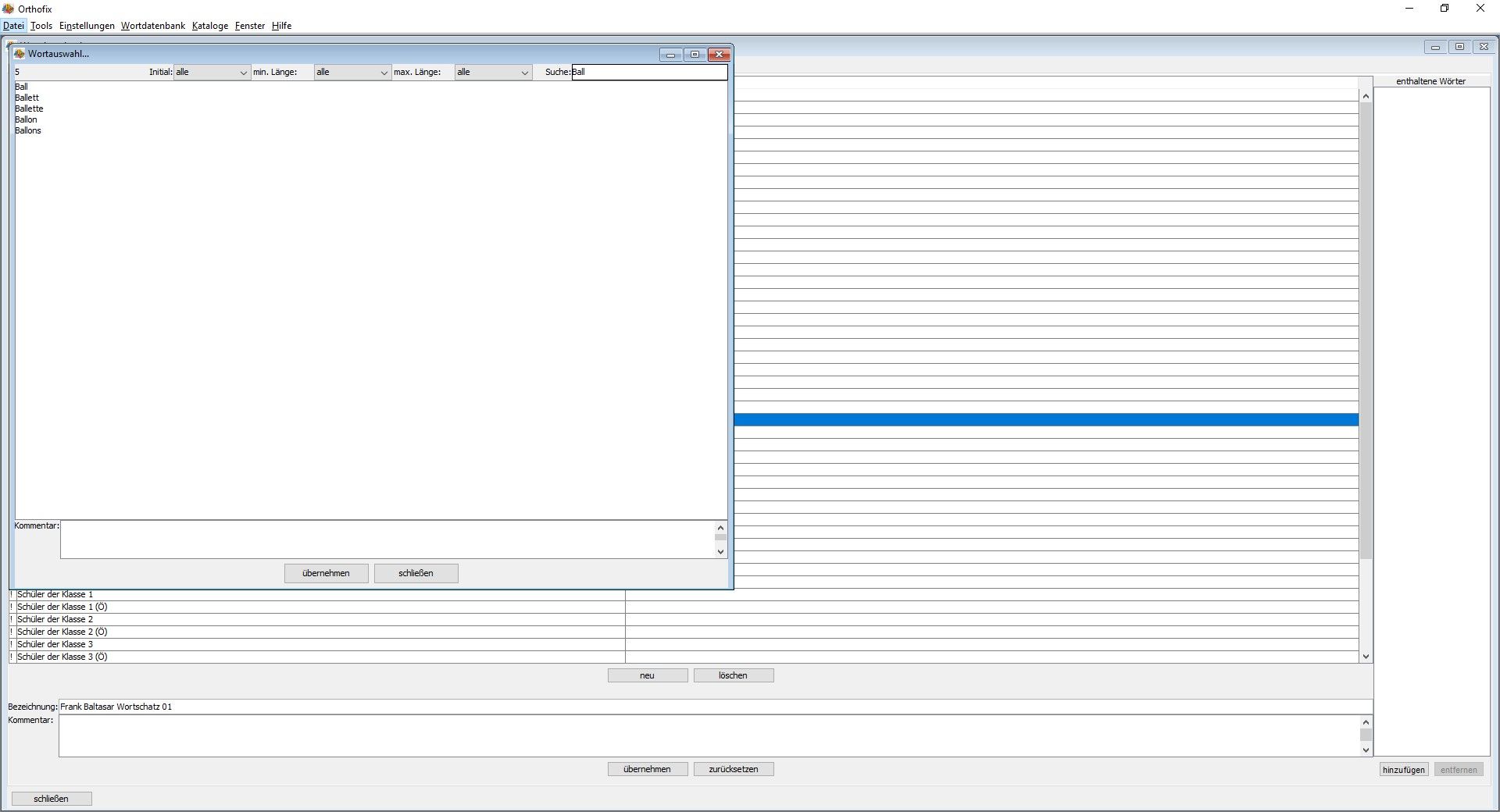
16.04.2020 - New Distributor in Hong Kong
Even in times of Corona, new partnerships can be established: With Bioland Technology Corporation MediTECH has gained a new committed partner in Hong Kong. The professional communication and product presentation is off to a promising start: MediBalance is now also described and made known in Chinese. and made known in Chinese:
https://www.bioland.com.tw/news_detail/11.htm
12.03.2020 - Corona Interrupts Training Programms nad Trade Fairs
Due to the corona crisis, the organisers cancelled the trade fairs in March in Berlin and also in May in Vienna.
18.12.2019 - The Brain is Working Again: "The Pulse of the Brain" is Available Again.
After one of the fundamental books by Fred Warnke "The Pulse of the brain" was temporarily out of stock, it is now available again. It describes the basics and requirements of good central hearing on the one hand in connection with reading and spelling skills on the other.
Mehr über das Buch erfahren Sie in unserem Shop.
11.12.2019 - An Important End of the Year Note
We are in business vacation in the periode of the 21st December 2019 til the 5th January 2020.
During this time you can send us messages by fax, e-mail or answering machine text, which we will be happy to process immediately from 6 January 2020.
From 6 January 2020 we will be personally available for you again and look forward to many contacts and a lively exchange.
16.10.2019 - EUHA-Congress 2019 in Nürnberg
Fitness for hearing and brain: The Hörfitness®-App
With Hörfitness®, the hearing care professionals network oton & friends and the technology company MediTECH have developed a holistic, app-based fitting concept based on the interlocking and expansion of two successful systems: The axone hearing therapy® and the hörFit® hearing training. For hearing care professionals, the concept offers new opportunities to position themselves in the competitive arena and to stand out positively in the interest of the customer.
One year after the launch of Hörfitness®, one thing is certain: the concept keeps its promises. "Although hearing loss due to aging cannot be completely avoided, its consequences on hearing comprehension in everyday life can be measurably influenced by Hörfitness® Training," explains Ralph Warnke, Managing Director of MediTECH Electronic GmbH.
With Hörfitness® oton & friends GmbH and MediTECH Electronic GmbH present a scientifically based fitting concept that sets new standards in hearing health and provides solutions for the main interference factor in hearing aid supply: The acceptance of hearing aids. Since many people do not go to the hearing care professional until very late in life, hearing perception in the brain is often already severely impaired. As a result, a hearing aid is initially perceived as unpleasant because noise cannot be successfully blocked out and the 'new' sounds can no longer be properly classified.
With the app, the customer can train his hearing with targeted exercises and has the chance to train his neural abilities in auditory perception. The app serves as a personal trainer and accompanies the user through the entire process. A 14-day hearing therapy to activate the hearing processing is followed by a one-year neural hearing training for hearing retention. In this way, it is possible to noticeably improve hearing within a very short time with the help of a hearing aid. The best thing about it: The app is available anywhere and anytime for hearing training on your own smartphone or tablet - whether at home, on vacation or on the road. With the Hörfitness® concept, the customer is also much more involved in the fitting process than before. This improves the acceptance of the hearing care, strengthens the customer relationship and promotes the success of the fitting.
Hörfitness® is deliberately aimed at all people who care about their hearing, regardless of age. Hörfitness® translates the scientific findings on the course of hearing loss and the gradual breakdown of brain cells responsible for understanding speech into an app solution that is easy to use and attractive for the client. This offers hearing care professionals new opportunities in addressing younger target groups as well as in the areas of exclusivity and local marketing. To position oneself more actively than the competition, to reach new target groups and to be able to offer customers a convincing and sustainable solution to promote their own hearing health - this is a major key to success in hearing acoustics today.
More information: https://www.hoerfitness.de/
Mehr zu der Pressemitteilung finden Sie here.
18.09.2019 - AUTRIS 2 Now Also Available for WINDOWS 10
AUTRIS-2 - playfully creating linguistic competence
The acoustic strategic game is now also available for WINDOWS 10. you can train certain auditory-motor skills in the areas of cognition and behavioural... and linguistic competence with the help of this game and without being aware of it.
During the playing process, the user has the task of bringing four auditory stimuli into a given spatial and temporal order. For this purpose, he receives four acoustic signals, e.g. one to four in a disordered sequence. By skilfully pressing the keys on the screen with the mouse, the user can restore the correct order. Depending on the user's age and training status, 50 different levels of difficulty can be selected. Training with AUTRIS-2 is therefore suitable for every user, especially for improving the most essential sub-functions of the central automation skills.
In addition, the coordination between the two hemispheres of the brain is used for training, as stimuli perceived from different directions must be evaluated by the brain. Other skills that are trained "on the side" are for example:
- Attention
- Differentiation and selection
- Direction determination and pitch discrimination
- Pattern recognition
- Memorization
- Fine motor skills through targeted pressure of the mouse buttons
- Computer control
02.01.2019 - New Discovery in Neuroscience: Newborn Babies Have the Ability to Pick Out Words
Original article NEUROSCIENCE NEWS 2019-01-29
Abstract: Researchers discovered that babies are able to pick words from language starting at the age of three days using fNIRS.
Source: University of Manchester.
Newborn babies are born with the inbuilt skills to pick out words from language. The international research team discovered two mechanisms in 3-day-old infants that give them the ability to pick out words in a sound stream. The discovery provides an important insight into a first step towards language learning.
The study, published in the journal Developmental Science, is a collaboration between the researchers from SISSA in Italy, the Neurospin Centre in France, the University of Liverpool and the University of Manchester funded by the European Research Council.
One of the mechanisms discovered by the team is the so-called prosody - the melody of language that allows us to recognize when a word begins and ends. Another mechanism, as they call it the statistics of language, which describes how we calculate the frequency with which sounds come together in a word. Dr. Alissa Ferry from the University of Manchester adds: "We think this study shows how sensitive newborns really are and how much information they absorb." "This is very important for new parents and gives them an insight into how their baby listens to them," says Dr. Alissa Ferry. "Language is incredibly complicated and this study is about understanding how babies try to make sense of it when they hear it for the first time."
"We often think that language is made up of words, but words often blend together when we speak. So one of the first steps in learning language is to pick the words. "Our study shows that at the age of only 3 days, they are able to pick out individual words from the language without understanding what it means." And we have identified two important tools, which is almost certainly inbuilt and gives the newborns ability to do this."
By using a pain-free technique called near-infrared spectroscopy, which enlightens the function of the brain, they could measure how much was absorbed and which parts of the brain were active.HEG system offered by MediTECHBased on NIRS technology, this enables simple derivation of prefrontal brain activity, for example to record and train attentional performance.
09.03.2018 - Opportunities to Facilitate People with Disabilities
The Federal Ministry of Labor and Social Affairs has published information on funding and facilitating opportunities for people with disabilities in a series of brochures. Most of them are available on our partner portal. .
20.01.2017 - Network Partner Model is Launched
On 1.1.2017 our new Network Partner Model has officially started. Use the countless opportunities and become a network partner.
16.01.2017 - Partners and Friends Day on 6.5.2017 (Saturday)
Due to the positive response to the Partners and Friends Day in 2015, once again we are pleased to offer a similar event. You will be surprised - a series of interesting short presentations are waiting for you again. You will have the whole day to get to know the new equipments and methods in a pleasant and friendly atmosphere. And even learn helpful tips and tricks about the equipment and ask all the questions you come across while working with the equipments.
Sign up now: Registration for the Partner and Friends Day
Hint: On the following day there will be introductory courses on the Warnke procedure and on biofeedback/neurofeedback. Take this opportunity - Whether in combination with the Partners and Friends Day or not - to support people on their way to better perception with these two fundamental methods.
Registration for the Warnke trial course orr Biofeedback/Neurofeedback taster course (7.5.2017)13.01.2017 - New Online Shop
Take a look at our new online shop. Do you miss one of our products you are familiar with? Please do not hesitate to contact us. We offer a wider range of products than what you can see on the Internet. We will be happy to give you advice.
10.01.2017 - Online Course Registrations
Mit dem Re-Design unserer Internet-Seite können Sie Ihre
Seminarteilnahme jetzt auch bequem online vornehmen. Die Kurse finden
Sie unter https://www.meditech.de/event
Egal ob Sie sich per Fax, telefonisch oder online anmelden - wir freuen
uns, Sie als unsere Gäste bei einer interessanten und sicherlich für
Ihre Arbeit hilfreichen Veranstaltung begrüßen zu können.
16.11.2015 - Agreement on a Strategic Partnership with Zukor Interactive
MediBalance Pro distribution partner Zukor will distribute the professional sports balancing system in North and South America from 2016.
Düsseldorf, Germany: November 16, 2015 - MediTECH Electronic GmbH (Germany) and Zukor Interactive (USA) have entered into a strategic collaboration for the distribution of MediTECH's MediBalance Pro "Sport-Edition" - a a high-quality balance system for top athletes, high-end fitness trainers and other balance professionals.
The MediBalance Pro "Sports Edition" is a non-medical version of MediTECH's highly innovative balance platform. It includes a high-quality balance solution with computer-based testing, analysis and training software. The version is primarily aimed at all professionals with an interest in optimal balance such as athletes, pilots or expert snipers.
MediBalance Pro "Sports Edition" additionally integrates Zukor's high-end feedback games such as Zukor's Air, Zukor's Drive, Zukor's Sports 1, Zukor's Carnival and other solutions. Zukor's feedback games extend the application range of MediBalance Pro and increase the interest and motivation for balance training.
"Balance and coordination are crucial in many areas of life and work; MediBalance Pro offers solutions and meets the highly diverse needs of scientific users and even top athletes. We are delighted about the partnership and are convinced that Zukor will successfully establish the MediBalance Pro in America for the benefit of numerous users," says MediTECH Managing Director Ralph Warnke.
MediTECH's MediBalance Pro is the first third-party product that Zukor has decided to distribute. We have very high standards for the products we manufacture and distribute. "MediBalance Pro's innovative possibilities and the high reputation of the feature "Made in Germany" have convinced us. Being in balance is more than just a metaphor. For many professions such as top athletes, fighter pilots or snipers, optimal balance is crucial. MediBalance Pro, combined with Zukor feedback games, allows experts to analyze balance performances while improving them with the same easy-to-use system," explains Sam Turcotte, President and Technical Director of Zukor.
Zukor will start the active distribution of MediTECH's MediBalance Pro "Sports Edition" in January 2016. The system will be optimized for specific markets and applications, including solutions for highly professional fitness trainers, special forces and other top performers.
About MediTECH
MediTECH Electronic GmbH, founded in 1996, offers unique solutions to support learning, attention, perception and high performance training. MediTECH's users range from children with LRS and/or ADHD, adults with balance problems or tinnitus to top athletes and Olympic training centers. The long-established quality management system (ISO 9001 and ISO 13485) underlines the seriousness with which the company is committed to providing high quality solutions and support. The motto stands for MediTECH's vision: "We help people.
More information under www.meditech.de.
About Zukor Interactive
Zukor Interactive develops innovative digital feedback games, interactive software and multimedia content. The company has high expertise in 3D modeling, animation, UI design, API integration and multi-platform programming. Zukor Interactive was founded in 2010 by Samuel Turcotte, who brings his extensive Silicon Valley experience in digital media and the film industry to the company to develop leading multimedia solutions for healthcare, research, military and other special markets and audiences. The company's vision is to help people and thereby "make the world a better place".
You can find more information about Zukor under www.zukorinteractive.com.
Contact Info:
MediTECH Electronic GmbH, Langer Acker 7, D-30900 Wedemark, Germany, +49 5130 97778-0, ralph.warnke@meditech.de.
Zukor Interactive, 4730 South Fort Apache Road, Ste. 300, Las Vegas, NV 89147 USA, +1 (702) 534-4727, press@zukor.com.
24.10.2015 - Partners and Friends Day 2015
On October 24, 2015, the first and certainly not last Partners and Friends Day took place at MediTECH.
Even though there was a common theme in the event with seven thirty-minute short lectures, each was held twice, the participants had enough time during the breaks to inform themselves at topic stations about devices and methods in general and their application and operation in particular and to try out the devices. Thus there were many aha-experiences and new insights into procedures. The special daily offers were well received.
A popular venue was also the cafeteria, offering a variety of delicacies, where every visitor could find something.
At the end of the event, many participants expressed the wish to repeat such a pleasant, informative and exciting event - this wish also reflects our plans. You will be surprised when there will be a new edition of a partners and friends day.
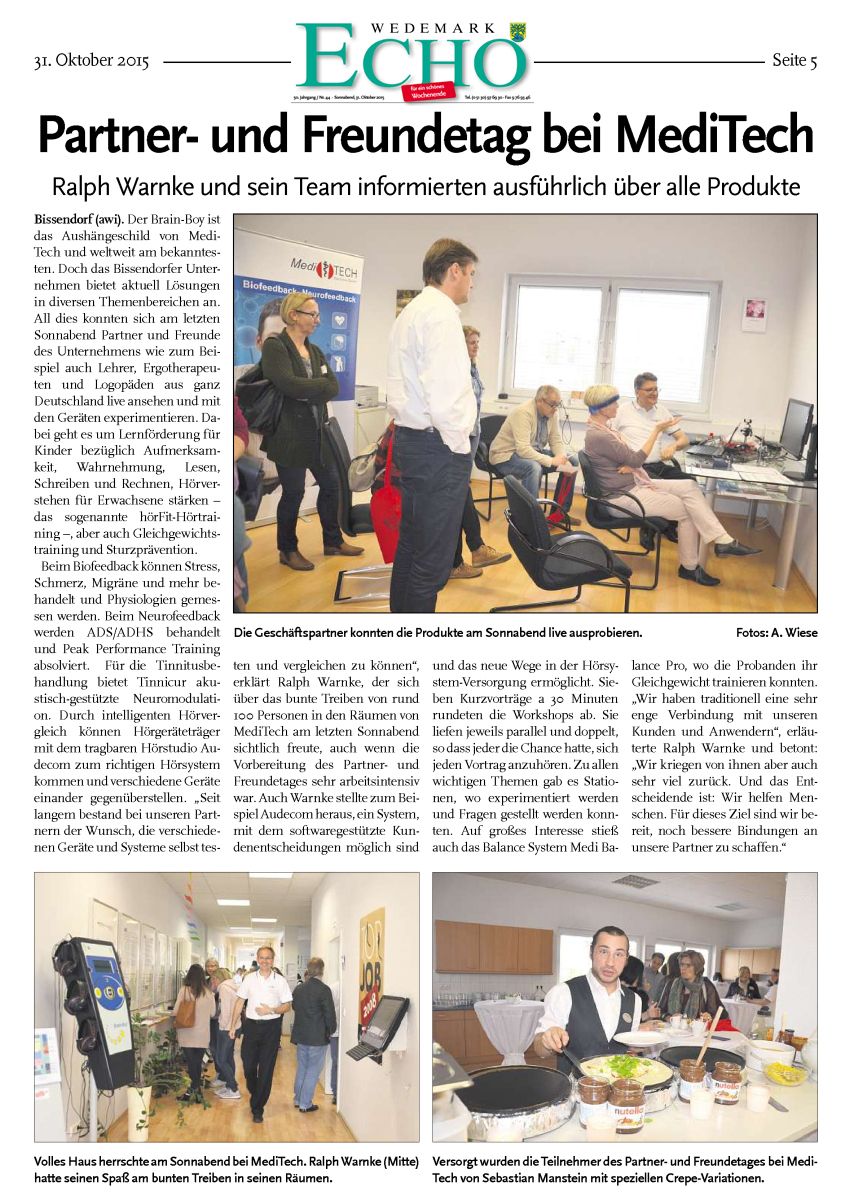
10.2015 - Internationale Articles about MediTECH
In a congress follow-up on the EUHA 10/2015 by the authors of the Gaceta AUDIO (Spain) in the expenditure December 2015 MediTECH was presented with the hearing comparison system AUDECOM together with 14 further enterprises.
